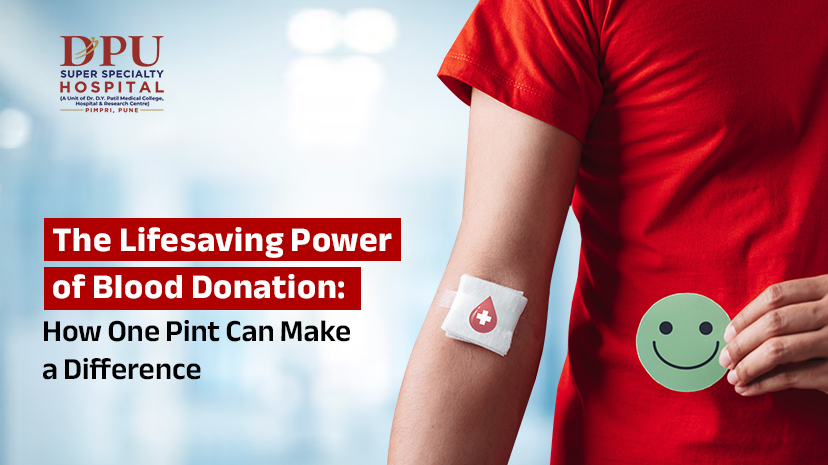The Lifesaving Power of Blood Donation: How One Pint Can Make a Difference

Donating blood is a basic gesture, yet incredibly powerful act that saves lives. Millions of people around the world receive blood donations each year, supporting their healing process, cancer, or other traumatic accidents. In this article, we examine the strong impact one blood donation can have and the science behind why your blood can make a life-saving difference.
1. How One Donation Can Save Multiple Lives
One pint alone of blood has the potential to save more than one life. This is because blood is divided into various elements, each serving a unique purpose for different patients:
- Red Blood Cells: These cells are essential for transporting oxygen across the body. They are often used for trauma victims, patients undergoing surgery, or those with anemia, helping to restore lost blood volume and improve oxygen supply.
- Plasma: Plasma is the yellowish liquid component of blood that contains water, salts, enzymes, and proteins. It helps in maintaining blood pressure and volume and is crucial for burn victims, those with liver disease, or patients undergoing surgery. Plasma helps in clotting and plays a critical role in fighting infections.
- Platelets: Platelets are small cells in the blood that help with clotting and wound healing. They are critical for cancer patients, especially those undergoing chemotherapy, as chemotherapy often leads to low platelet counts, leaving patients vulnerable to excessive bleeding.
By donating blood, you're helping to provide a crucial resource for patients with varying needs, offering lifesaving assistance for multiple individuals.
2. The Science Behind Blood Donation: How Your Blood Saves Lives
Blood donation is a highly controlled procedure. that ensures the safety of both the donor and the recipient. When you donate blood, It is often split into its various elements —red blood cells, plasma, and platelets—using a process called centrifugation. This process spins the blood at a high speed, allowing the different components to separate based on their density.
- Red Blood Cells: These are divided and preserved for transfusions, helping trauma patients or those with chronic blood loss.
- Plasma: This part can be altered to form clotting factors. or other therapies for burn victims or those with immune disorders.
- Platelets: Platelet donations are stored separately and are used to help cancer patients or those with blood disorders.
Once donated, each component of your blood is stored and carefully distributed to hospitals and medical centers in need, offering life-saving solutions for a variety of health conditions.
3. What Are the Health Benefits of Donating Blood?
Blood donation serves more than just others—it can also offer several health benefits for the donor:
- Improved Cardiovascular Health: Donating blood regularly could reduce your risk of heart disease and stroke. Blood donation helps reduce iron overload in the body, a condition that can lead to cardiovascular issues if left unchecked.
- Reduced Iron Levels: Blood donation helps keep your iron levels balanced, which can prevent conditions such as hemochromatosis, a condition where excess iron builds up in the body.
- Enhanced Red Blood Cell Production: After donation, your body works to replenish the lost blood cells, encouraging the generation of new red blood cells, which can boost overall circulation and energy levels.
- Psychological Boost: The act of donating blood can give you a sense of purpose and fulfillment, understanding that your efforts could save lives and help those in need.
Donating blood is a safe, simple, and selfless act that benefits both the receiver and the donor in ways beyond what is often understood.
4. How Your Blood Saves Lives
Each time you give blood, you play a crucial role in saving lives. Whether it's helping a trauma patient in need of a transfusion, supporting a cancer patient undergoing chemotherapy, or assisting a burn victim who needs plasma, your blood is invaluable. It’s a vital resource for medical treatments and emergency situations, and in some cases, it is the difference between life and death.
While one pint of blood may seem like a small contribution, its impact is immeasurable. By donating blood, you’re not only helping individuals in immediate need, but you’re also contributing to the ongoing support and care for those who rely on blood transfusions for treatment and recovery. Your contribution helps ensure that hospitals and emergency teams can provide essential, life-saving care.
Conclusion
The impact of blood donation is truly invaluable. In just a few minutes, you can donate a pint of blood that has the potential to save multiple lives across a wide spectrum of medical conditions. From trauma patients to cancer sufferers, the impact of your donation is far-reaching. Besides helping others, blood donation can promote the donor's health and can provide a profound sense of purpose and satisfaction. So, the next time you’re eligible to donate, remember that your blood could be the key to someone else’s survival.
Your one donation can make a significant difference.








